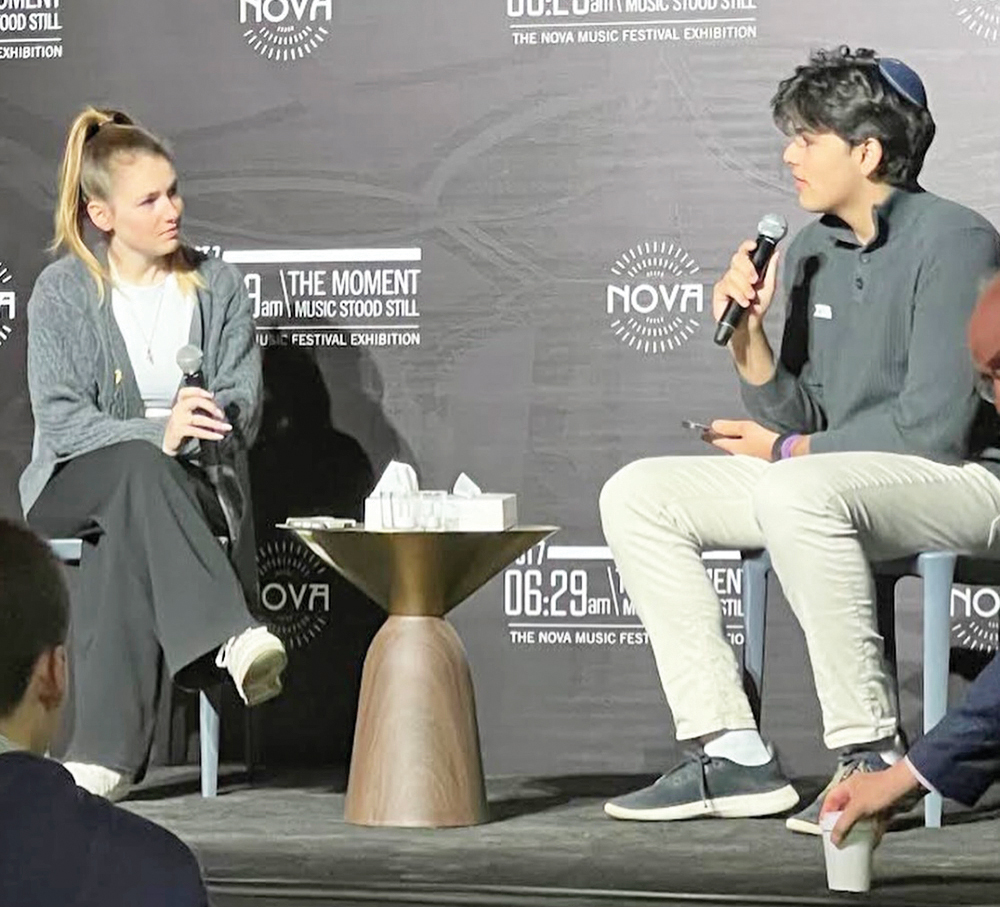A Kohen’s Soaked Socks
In ordinary times we would not consider it. However, when praying outdoors on the still-moist ground this past Shabbat, a Shaarei Orah kohen congregant asked if he could recite Birkat Kohanim while wearing shoes. During Shacharit, our kohen’s socks became soaked. He wondered if there is a way for him to say Birkat Kohanim while wearing shoes.
Rabban Yochanan ben Zakai’s Takana: a Basis to Be Lenient
It turns out that there is a basis. Rav Ovadia Yosef (Teshuvot Yechave Da’at 2:13) notes that we must carefully examine the issue’s source. The Gemara (Sotah 40a) records that Rabban Yochanan Ben Zakai forbade kohanim from ascending the duchan (elevated platform) to recite Birkat Kohanim if they are wearing shoes. This Gemara implies that as long as a kohen does not stand on the duchan, he may recite Birkat Kohanim while wearing shoes.
Rav Ovadia Yosef cites several Sephardic authorities who subscribe to this approach (in varying degrees). These authorities include Rav Yitzhak Pelaggi (Yafe LaLev 128:29), Rav Yehoshua Peri’ah HaKohen (Teshuvot Vayikra Yehoshua, Hilchot Nesi’at Kapayim 1), Rav Eliyahu Hazan (Teshuvot Ta’alumot Lev 3, Kuntress Halikutim number 15), and Rav Yaakov Moshe Toledano (Teshuvot Yam HaGadol 6).
Two Problems With the Leniency: Rav Yehuda Aiash and the Kaf Hachaim
However, there are two formidable challenges to this ruling from two great Sephardic authorities. Rav Yehuda Aiash (Teshuvot Beit Yehuda 1: Minhagim 109:64) argues that kohanim may not recite Birkat Kohanim unless they are standing on a duchan. Rav Ovadia, though, fends off this challenge, noting that the Radbaz (Teshuvot 1:237) rules that in challenging circumstances, kohanim can perform Birkat Kohanim without a duchan. Rav Hayyim Pelaggi (Teshuvot Chikakei Lev Orach Chaim 4) supports the Radbaz, and Rav Ovadia writes that common practice accords with the Radbaz.
The second challenge is the Kaf HaChaim (Orach Chaim 128:120), who applies the principle of lo pelug rabbanan to reject the lenient approach. Lo pelug rabbanan means that no exceptions are made to a halachic rule even when the law’s reasoning does not apply. Thus the Kaf HaChaim understands Rabban Yochanan ben Zakai’s enactment as forbidding Birkat Kohanim with shoes in all circumstances, even if the kohen is not standing on a duchan.
Rav Ovadia replies, though, that the Gemara clearly indicates that the takana applies only to a kohen reciting Birkat Kohanim on the duchan.
Rav Ovadia Yosef’s Ruling
Therefore, Rav Ovadia concludes that we should certainly not condemn those communities where kohanim bless the congregation while wearing shoes when they are not standing on the duchan. However, he concludes that kohanim should be strongly encouraged to remove their shoes for Birkat Kohanim in all circumstances in conformity with the view of the Kaf HaChaim.
It is reported that in Aleppo’s Syrian Jewish community kohanim wore shoes when reciting Birkat Kohanim away from the duchan. However, in recent decades Syrian Jews have adopted a stricter view regarding this matter.
Conclusion
In our case, I thought that it was a case of a great need for the kohen to rely on the lenient view. The gentleman is in his 70s, and I was very concerned for him to stand in wet socks in 50-degree weather for an extended period. I therefore permitted relying on the old practice of the Aleppo kohanim.
The story arrives at an anti-climactic conclusion. I asked the kohen if he relied on my ruling. He replied that he did not, since he wanted to adhere to the stricter opinion. I was amazed. Who may be compared to the holy Am Yisrael, who lovingly observe the laws set forth in the Shulchan Aruch in the best possible manner even when it is inconvenient and somewhat uncomfortable?!
Rabbi Haim Jachter is the spiritual leader of Congregation Shaarei Orah, the Sephardic Congregation of Teaneck. He also serves as a rebbe at Torah Academy of Bergen County and a dayan on the Beth Din of Elizabeth.













